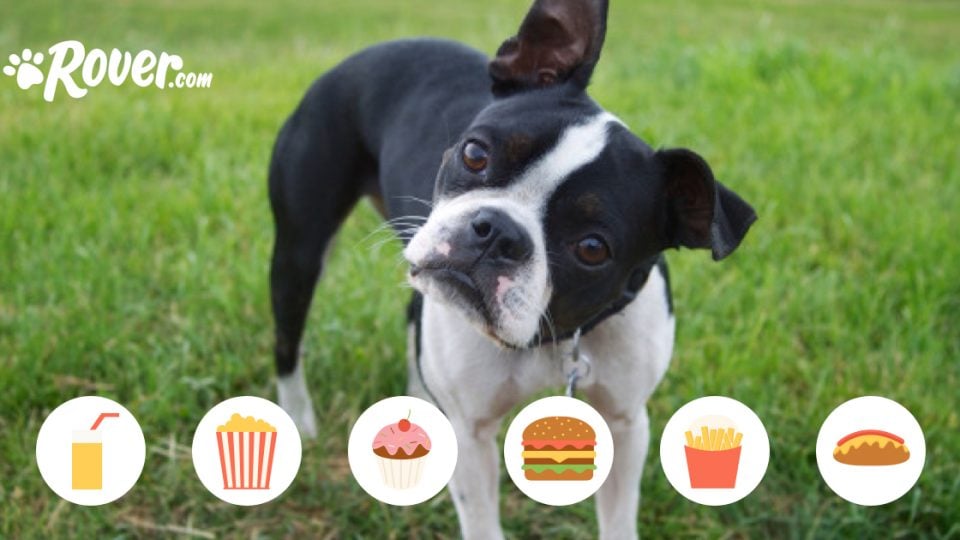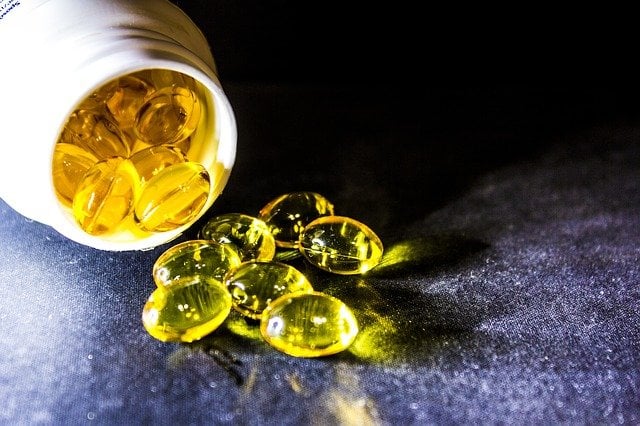Cod liver oil, a good source of omega-3 fatty acids and vitamins A and D, is safe for dogs to eat. In many cases, it can even be beneficial to your dog’s health. But, if your dog’s nutritional needs are already met by a commercial dog food diet, adding cod liver oil as a supplement isn’t just unnecessary, it’s not recommended.
Can My Dog Eat Cod Liver Oil?
Yes, but some dogs shouldn’t. Cod liver oil has become more popular in recent years, with some companies offering versions made just for pets. Cod liver oil’s omega 3 fatty acids have anti-inflammatory properties, and decreasing inflammation in the body allows for greater immune system efficiency overall. Cod liver oil can boost your dog’s health in other areas too, including the cardiovascular system, brain, joints, skin, and fur.
When you consider that many processed dog foods lack the essential omega 3 fatty acids dogs need, cod liver oil seems like a great supplement. However, cod liver oil also contains vitamins A and D. These are both good vitamins, of course, but if your dog already has sufficient levels of vitamin A and D in their diet, feeding cod liver oil can cause the liver to work harder than necessary in order to process the surplus.
How Can Cod Liver Oil Benefit My Dog?
Cod liver oil benefits dogs the same way it does humans. Some nutritionists even consider it a “miracle food” because it has such a positive impact on so many ailments. Supplementing a diet with this fishy elixir can:
- Delay and reverse joint and arthritis pain
- Improve memory function
- Lower triglyceride levels (a type of fat found in the blood)
- Decrease blood pressure
- Reduce behavioral challenges like depression
- Fight infection and enhance immunity
- Decrease the markers of diabetes
- Improve heart function and heal damaged arteries
How Do I Feed My Dog Cod Liver Oil?
Cod liver oil, like most oils, is a viscous liquid. The best way to feed it to a dog is simply mixing it in with a regular meal along with an equal amount of saturated fat like coconut oil (if you’ve purchased a cod liver oil in pill form, nick the exterior shell to release the liquid for mixing). The saturated fat helps the body to process the vitamins in the cod liver oil. Most dogs are more than happy to have the fatty, fishy flavor boost.
A little bit of cod liver oil goes a long way. Dogs who do not receive vitamin D and vitamin A from other sources can have the following amount daily:
- 10-15 lb dogs: 1/4 tsp
- 25 lb dogs: 1/2 tsp
- 50 lb dogs: 1 tsp
- 75 lb dogs: 1 1/2 tsp
- 100 lb dogs: 2 tsp
Even if your dog does not receive daily doses of vitamin A & D from their regular food, however, it’s important to ask your vet before adding cod liver oil to their diet. Dogs who spend a lot of time outdoors, particularly in the southern US, may already be getting all the vitamin D they need. Although dogs don’t absorb vitamin D from the sun directly through the skin like we do, they do absorb it in the process of self-grooming. For these dogs, the recommended daily dose should be decreased during warmer months. (At higher latitudes, dogs absorb less vitamin D in the summer, if any. In places like Canada and New England the sun provides almost no vitamin D.)
Never feed your dog cod liver oil as a supplement if they are already getting vitamins A and D from their commercial food. Both nutrients can be toxic in excess. Always check with your vet about whether cod liver oil is right for your dog.
Are There Healthy Alternatives To Cod Liver Oil?
Yes! If your dog already has a diet that’s rich in vitamins A and D, fish oil is a great way to provide some of the same benefits of cod liver oil without the toxic potential. Fish oil is high in omega 3 fatty acids which help to regulate blood flow and inflammation, reduce joint pain and itchy skin, and strengthen the immune system.
Fish oil also contains DHA, an omega-3 component which helps a puppy’s brain and eyes develop properly and may help improve function in dogs with canine cognitive dysfunction.
What Type of Fish Oil Should I Feed To My Dog?
Fish oil is sold in three different formulas:
Natural triglyceride oil – This fish oil variety is not purified, making it the most natural option but also the one most likely to contain contaminants.
Ethyl ester oil – Ethyl ester oil is distilled and contains minimal impurities alongside high levels of omega-3 components like DHA.
Synthetic triglycerideoil – This fish oil variety is made from synthetic sources and is the least easily absorbed.
Consult your vet before choosing the best fish oil for your dog’s size and health.
What Else Can Your Dog Eat?
We offer a collection of articles on foods that are safe for dogs to eat, including vegetables, dairy, bread, and junk food. There is a wide variety of “human food” that is healthy for your dog to eat, while others are considered toxic and dangerous. Check out which fruits and veg are good for your dog and which spices and seasonings are ok to give to your furry little buddy. We’ve created these articles to ensure you’re informed on feeding your dog a wonderfully varied diet while learning the limitations of a dog’s sensitive digestive system.



